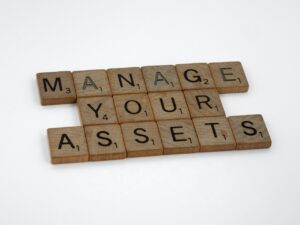
Working out your risk profile
Investing money has its risks, more so if you are prepared to go for growth type of investments but you may not have the stomach to take on risky investments.
It all depends on your investment time frame which basically means how long it will be before you need the money.
The longer your time frame the more risk you are able to take with your money.
There are factors which determine your time frame and they are:
Your Age
Obviously if you are 65 then you are not going to set a 30 year savings goal, if you are in your 20s you can take more risks but that does not mean you should be reckless and just invest all your money in Bitcoin in an attempt to get rich quick.
Your health
Your savings goals
The key strategy whatever your risk profile is diversification.
That is to spread your portfolio over a wide range of industries. This is possible for the ordinary man and woman in the street who are able to invest in managed funds where your investment is combined with those of others. It is then up to the fund manager to handle all of the investments. This is exactly how kiwisaver operates.
Each fund will give you an option of investing in Conservative, Balanced, or Growth funds and your decision of which fund to leave your money in will be determined on whether you can stomach heavy losses should the share market go belly up. If the thought of losing your money will cause you sleepless nights then you should go for balanced funds. Conservative funds will not grow your money at the same rate as balanced or growth funds will and once the fund manager withdraws their fees it may feel as though your money is not growing at all. As far as Kiwisaver is concerned, the government will contribute 50% of what you put in to a maximum of $520 every year so at least this would make it worthwhile for you to at least contribute $1,040 a year to get the $520. This will seem like obtaining 50% interest on your $1,040 for that year.
It all adds up and no one is going to reach the retirement age of 65 and regret that they contributed to their Kiwisaver.
Your risk profile is not the only determining factor in deciding which fund to choose. If you are saving for a deposit on a home then you are not going to want to risk losing your money in the share market which will happen if you had all of your money in Growth funds only for the markets to tumble.

Investing in growth funds for long term growth and taking needless risks are not the same thing. If you invest in something dodgy without knowing anything about what you are investing in then you are asking for trouble.
Your age is another factor to consider. When you are young, it is advisable to go for growth funds because you have more time to recover from a financial setback such as a market crash, whereas someone nearing retirement would have their retirement plans affected should this occur.
It is your money however and your own responsibility to decide where you are going to invest so learn all you can about the various types of investments and in time you increase your financial literacy.
It is sensible to diversify and invest in a range of industries. Placing all of your eggs in one basket is not sensible. There are stories of those who did just that and lost during the Global Financial Crisis as several finance companies fell.
The information given here is my own opinion and not given as financial advice. It is best to seek professional financial advice if you are unsure.
Note: Kiwisaver is New Zealand’s retirement savings scheme and this information may not be applicable in your own country.


















